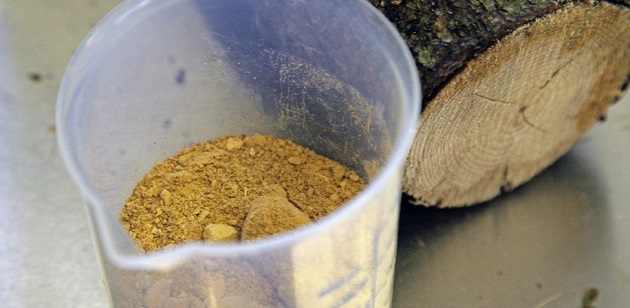
News
Industry update
Research
Feeding and Nutrition
Sustainability
Tree biomass feed technology makes a comeback
June 10, 2021 By Nestor Arellano
 (Image from: Foods of Norway)
(Image from: Foods of Norway) Back in the 1970s, Finnish biotechnology company, eniferBio, worked with the forestry industry of Finland in developing and commercializing poultry and hog feed based on microfungus from tree biomass.
eniferBio has now partnered with Foods of Norway, a research and innovation centre based at the Norwegian University of Life Sciences (NMBU), to use the same method to develop sustainable fish feed ingredients from renewable, natural resources.
They aim to produce yeast from tree biomass to be used as a sustainable protein source in feed for both agriculture and aquaculture.
Some four decades ago, eniferBio developed a method for producing a form of single cell protein derived from fungi – the PEKILO mycoprotein. This protein is highly nutritious and can replace other protein sources in feed for farm animals. It is produced from under-utilized and renewable organic raw material side-streams from biorefineries.
However, as the pulp industry developed, no more suitable side streams were being produced, and the last PEKILO plant closed in 1991.
Recently, eniferBio has applied the process to fish feed production, using cheaper substrates and side-streams from the forest industry for an economically viable process.
“Foods of Norway aims to develop technology that can contribute to a profitable production, and eniferBio produces single cell protein with cheaper substrates and side streams than we are able to today,” said Prof. Margareth Øverland, director of Foods of Norway. “Our new partner can help create the market we hope will be established for single cell protein as an ingredient in feed.”
Some of the advantages of the product are:
- Production of the PEKILO protein requires no arable land as it takes place in closed bioreactors, making full use of the nutrients and water needed.
- The process is based on using a fast-growing micro fungus highly tolerant to many growth inhibitors. The fungus converts organic substances into nutritious cell mass at high yield and productivity. The process provides a valuable product, while reducing costs associated with using water in the process. The solution allows modern biorefineries to convert their underutilized side streams into valuable single cell protein.
Using forestry industry substrates for feeds is a “well-validated process”, according to Simo Ellilä, chief executive office and chief technology officer of eniferBio.
“We already had the know-how and resources, and with new biotechnology we have improved the process and the product. A key enabler for this venture has been that we have been able to increase the protein content in the product,” said Ellilä.
Print this page